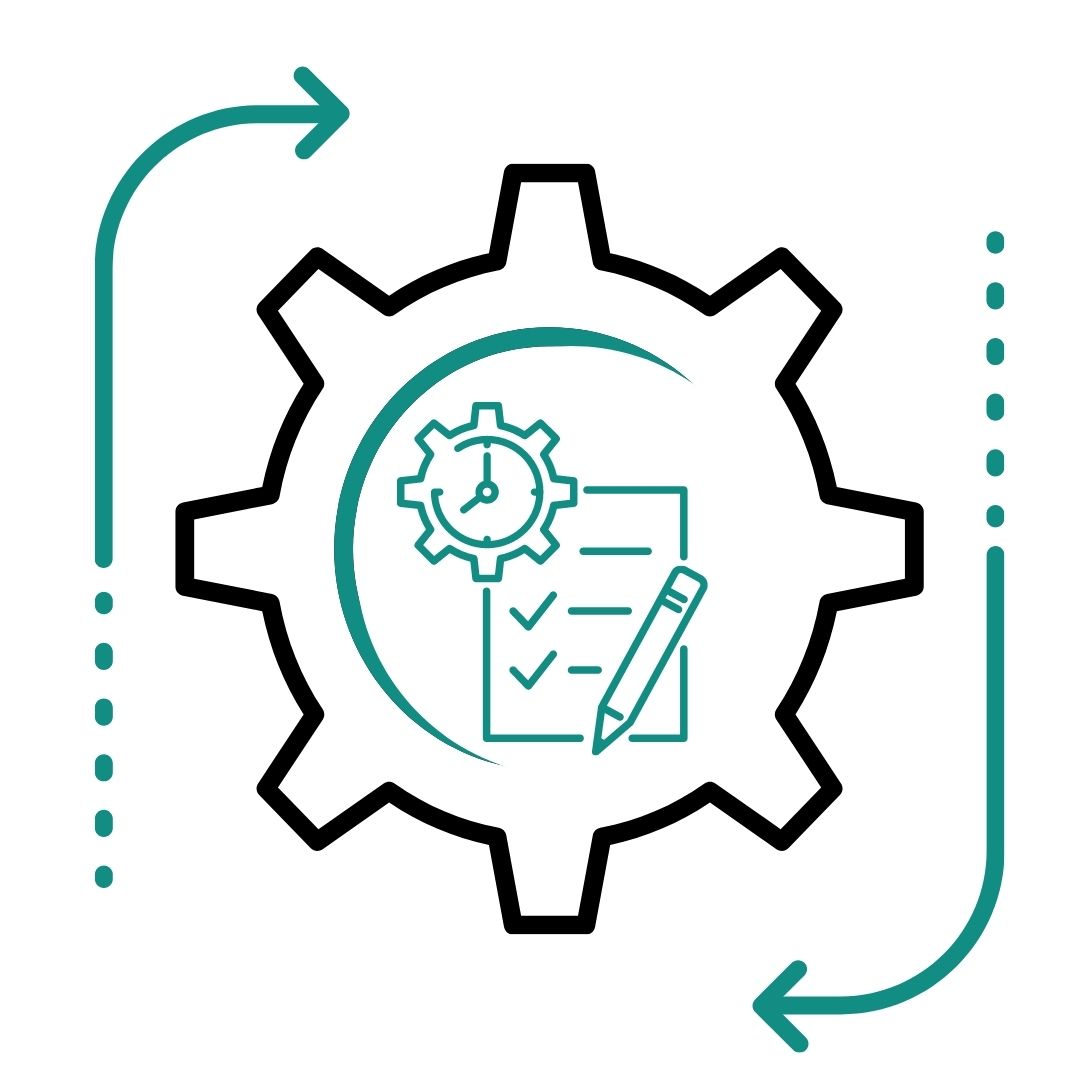Engineering & Manufacturing Foundation Apprenticeship
At Elevated Knowledge, we’ve launched our Foundation Apprenticeship in Engineering Manufacturing – an 8-month programme delivered nationally, either hybrid online and in-company, or with practical hands-on training at our Stockport centre.
It covers roles in electrical and electronic, fabrication, mechanical manufacturing, and maintenance.
Employers get a £2,000 cash incentive, pay no national insurance contributions – and an extra £1,000 if the apprentice is aged 16–18.
Apprentices bring fresh skills into your business, and having them on your team can also strengthen tender applications.

Course Details
Level
This apprenticeship is Level 2
Duration
Typically 8 months to gateway
Details of standard
The Engineering & Manufacturing Foundation Apprenticeship is an employed position designed for people looking to gain a solid start in their career. It offers a blend of workplace experience, technical learning, and personal development, helping apprentices build the skills, knowledge, and behaviours needed to succeed in the industry.
This apprenticeship combines hands-on experience in the workplace with structured off-the-job training, covering key technical skills alongside employability skills, behaviours, and essential English and maths. It not only develops practical ability but also helps apprentices explore their future career paths.
By the end of the programme, apprentices will be fully competent in all the technical and employability skills set out in the standard. From here, they can progress into employment or continue their training through a Level 2 or Level 3 apprenticeship.
For employers, foundation apprenticeships are a great way to nurture fresh talent. They allow you to see a young person develop in a real work environment, with the reassurance that they are receiving additional support and training. This route also opens doors to a wider talent pool of motivated young learners.
Under the DfE Apprenticeship Funding Rules 2025/26, employers may be eligible for up to £2,000 per foundation apprentice, subject to retention and progression.
Overview of the Role
General engineering and manufacturing operatives work in a variety of settings, including:
- Production
- Maintenance
- Component and system assembly
- Machining operations
- Fabrication and welding
- Additive manufacturing
These roles exist across a range of industries such as automotive, aerospace, energy, and advanced manufacturing.
Foundation apprentices will learn how to:
- Work safely and consistently
- Plan and organise resources effectively
- Complete tasks to quality standards and within timeframes
The programme includes a minimum of 187 hours off-the-job learning. On completion, apprentices will have the knowledge, skills, and behaviours needed for the role and will be ready to progress into more specialist occupations or further apprenticeships.
Occupational Profile
Possible Career Paths
This Foundation Apprenticeship can lead into a variety of roles, including:
Engineering Operative – Electrical & Electronic Engineering
Engineering Operative – Fabrication
Engineering Operative – Mechanical Manufacturing Engineering
Engineering Operative – Maintenance
Many learners go on to complete higher-level apprenticeships or secure employment in specialist technical roles.
Entry Requirements
The apprentice must normally be age 16 to 21 at the start of their apprenticeship. Exceptions to this are set out in the Department for Education Apprenticeship funding rules.
Core Knowledge
Technical knowledge
K1: Employee responsibilities under relevant health, safety and welfare regulations.
K2: Sustainability principles and practices relevant to the role, including waste disposal and the impact of engineering and manufacturing on the environment.
K3: Types, use and storage of personal protective equipment (PPE).
K4: The engineering and manufacturing function and role and responsibilities of the operative.
K5: Workplace safety and operating procedures. What they are and why they are important.
K6: Work area preparation and maintenance techniques.
K7: Use and characteristics of job specifications, engineering and manufacturing drawings, and technical information.*
K8: Use, basic maintenance and storage techniques of tools, equipment and machinery associated with engineering and manufacturing tasks.
K9: Types and use of common components, connections and fastenings associated with engineering and manufacturing tasks.*
K10: Techniques to carry out basic hand-based engineering and manufacturing tasks, including measuring and marking out, bench fitting and hand tool tasks.*
K11: Techniques to carry out basic machine-based engineering and manufacturing tasks: drilling, milling, turning, grinding, basic Computer Numerical Control (CNC) operations, and additive manufacturing.*
K12: Methods of assisting in tasks, for example preparatory work, pre-assembly, monitoring equipment, lifting, holding and positioning materials and components.
K13: Techniques to carry out simple quality checks: visual inspections and basic operational testing.
Core Skills
Technical skills
S1: Comply with employee responsibilities under health, safety and welfare regulations.
S2: Dispose of waste safely and sustainably. Segregate resources for reuse and recycling.
S3: Use and store PPE.
S4: Prepare and maintain the work area.
S5: Interpret engineering and manufacturing information for example, job specifications, engineering and manufacturing drawings, and technical information.*
S6: Use and store tools, equipment and machinery associated with engineering and manufacturing tasks, including carrying out basic maintenance.
S7: Assist co-workers in engineering and manufacturing activity when required. For example, holding and positioning work-piece assembly.
S8: Apply techniques to carry out basic hand-based engineering and manufacturing tasks.*
S9: Apply techniques to carry out basic machine-based engineering and manufacturing tasks.*
S10: Carry out simple quality checks of own work.
Core Behaviours
-
Employability skills and behaviours
EB1: Communicate and share information using verbal, non-verbal, written and digital methods.
EB2: Act in a professional manner including good time keeping and conduct.
EB3: Apply new learning and feedback to everyday practice.
EB4: Complete own work tasks and ask for help when needed.
EB5: Work with colleagues to contribute to team outcomes.
EB6: Seek ways to manage own financial, health and wellbeing needs using available resources.
EB7: Overcome challenges and adapt to changes at work.
EB8: Work in line with health, safety and environmental requirements.
Specialist roles
Servicing and maintenance operative
Machine setter/operative
Mechanical engineering operative
Fabricator
Engineering fitter
Multi-disciplined engineering operative
Materials processing and finishing operative
Technical Support operative Founding/casting operative
What’s Included
Expert instruction from Industry served Instructors
E-Portfolio for instruction, support, and progress management
Contact us
• Phone: 0161 475 5840
• Email: info@elevatedknowledge.co.uk
Ensure your competence with Elevated Knowledge. Our commitment to rigorous, industry-relevant assessments ensures you are well-equipped for a successful career.
Qualification
English and maths qualifications
Apprentices must follow the English and maths formal qualification requirements as set out in the Department for Education Apprenticeship funding rules.
Benefits of this Apprenticeship
Employers get a £2,000 cash incentive, pay no national insurance contributions – and an extra £1,000 if the apprentice is aged 16–18.
Apprentices bring fresh skills into your business, and having them on your team can also strengthen tender applications.
If you know a UK business that wants to develop talent in these areas – connect them with Elevated Knowledge.
Think engineering… think growth… think Elevated Knowledge.

Why Choose Elevated Knowledge?
Expert Assessors:
All assessments are conducted by experienced industry professionals to ensure candidates meet rigorous industry standards.
Flexible Assessment Methods:
We use e-portfolio software, allowing candidates to upload their work from site and participate in remote live video observations.

Real-World Validation:
Our assessment-based approach ensures that candidates demonstrate their competence in real work environments.

Industry Recognition:
Industry Recognition: Our qualifications are recognised by employers across the UK, offering significant career advancement opportunities.

Launch Yourself Into The Future.
Ensure your competence with Elevated Knowledge and achieve Level 3 Maintenance and Operations Engineering Technician.
Our commitment to rigorous, industry-relevant assessments ensures you are well-equipped for a successful career.



